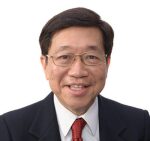
Hon-Chung Lau, professor of petroleum engineering at the National University of Singapore, offered a short guide to a successful career in petroleum engineering at the 2019 SPE Annual Technical Conference and Exhibition.
Early Career
- Learn and practice the basics of the job.
- Learn to work well with others .
- Seek out a mentor—an experienced person who can speak frankly (not your boss).
- Take the time to develop a deep understanding of the corporate culture.
- Master technical skills to the point where you can teach others.
“Developing good people skills is common sense but unfortunately that is not necessarily realized by every engineer.”
Middle Career
- Expand beyond your comfort zone.
- Be a leader—this can mean managing others or becoming a technical advisor.
- Learn how to manage change.
- Develop skills outside your discipline.
- Expand your professional network and reach out to professionals. outside of where you work, or even outside the industry.
- Realize that professional advancement may require finding another job.
“The way to increase your breadth is to not stick with the same thing and do it year after year.”
Late Career
- Those who succeeded in rising in the organization have to consider if they are worth what two or three younger engineers are earning.
- Look for ways to do what you do best to add value—that may mean promoting new technology, adding prospects, or finding a new business partner.
- Training others can make one a valuable asset.
“Leverage your strengths. We all have weaknesses, but it is more important to leverage your strengths to maximize your contribution to the company.”
